Berkeley College Hosts "A Time to Heal: A Conversation about Race, Policing and Social Justice" Webinar

Tuesday, June 16, 2020
AMERICAN CONFERENCE ON DIVERSITY CEO MODERATES DISCUSSION ON RACE, POLICING AND SOCIAL JUSTICE AT BERKELEY COLLEGE
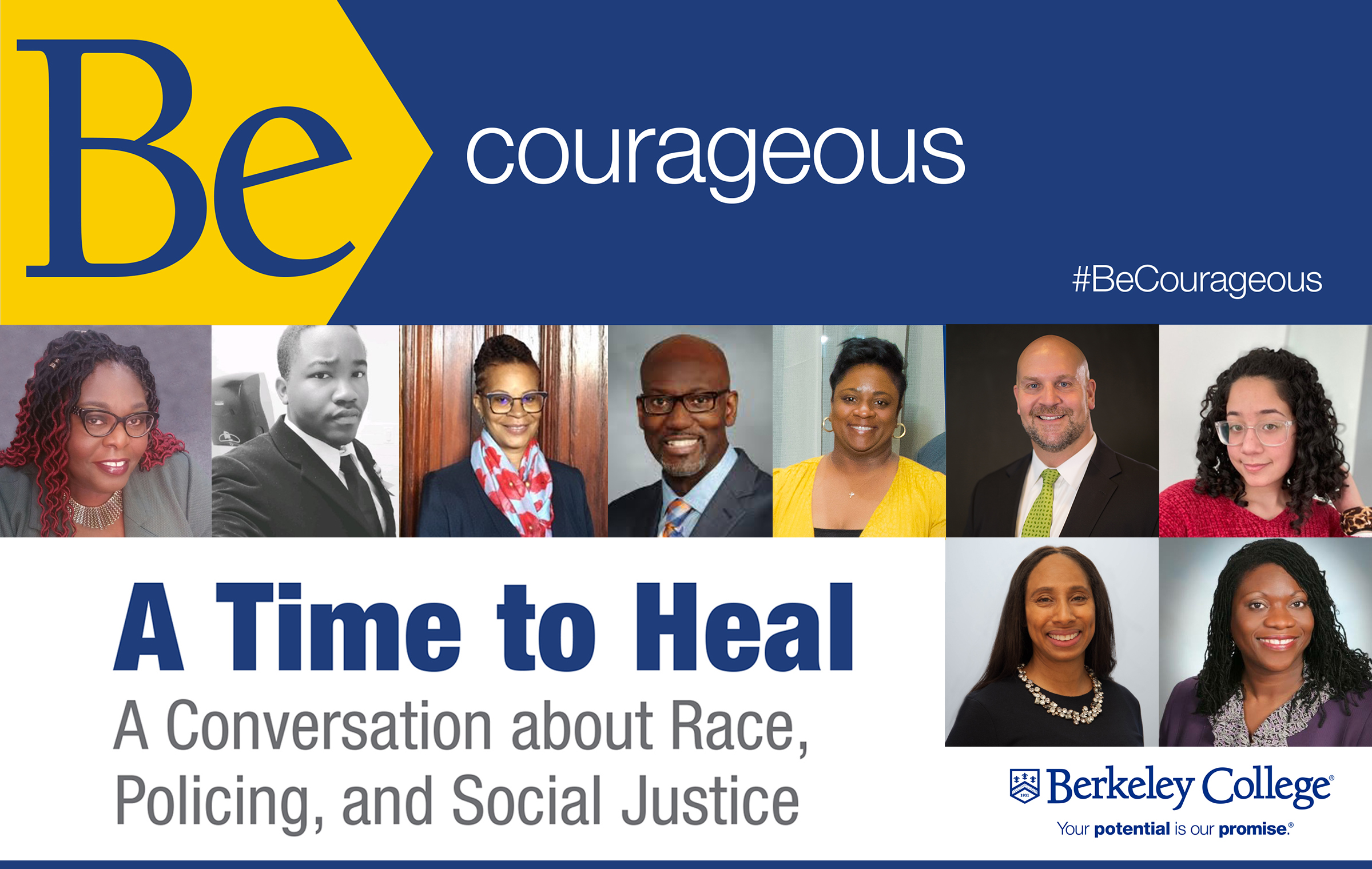
Share the News: @BerkeleyCollege @Ewilliamsriley #BeCourageous #NewsBerkeley
In the immediate aftermath of the killing of George Floyd, faculty in the Berkeley College Legal Studies and Justice Studies departments discussed creating a forum for students, faculty, staff and alumni to engage in a dialogue around the George Floyd killing and its implications, including the dramatic shift in public opinion regarding the black experience. This first town-hall style webinar, “A Time to Heal,” took place virtually on June 15, 2020. More than 240 people participated and discussed a number of important issues surrounding this crucial period in American history.
The panel of five faculty, two students and one staff member have diverse backgrounds, and their experiences range from law enforcement and public safety to the practice of law both in and out of the courtroom. “A Time to Heal” focused on how to engage around the current issues and address questions received from Berkeley students prior to the event.
“It is important for all educational institutions and communities to move in an actionable direction to combat systemic racism and foster inclusive communities,” said Michael J. Smith, President of Berkeley College. “We know we can and must do better to end racism. By providing a safe place for fearless conversations, we can make a difference. Today’s event is about understanding, reflection and reconciliation. To our students and to all of you here today – it is my hope that each of you will be inspired to reach higher in raising your voices against hatred and injustice – for the good of all humanity. Berkeley College is committed to being a catalyst for change.”
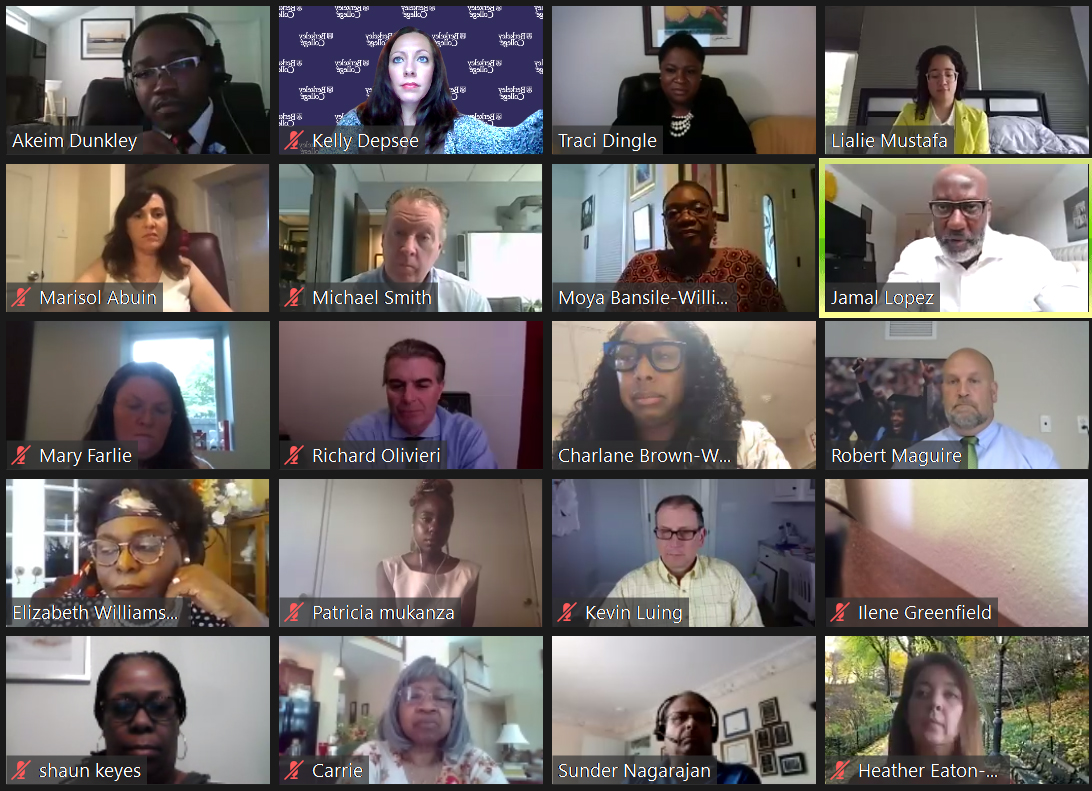
Elizabeth Williams-Riley, President and CEO, American Conference on Diversity, served as moderator (in top image of release, top row of photos, far left.) “I am proud to be a part of the process of healing,” she said. “After the surgery there are a whole lot of things that need to happen before we get to the healing. Taking this first step is a start.”
Panelists (continuing top row in top image, left to right,) were: Akeim Dunkley, Berkeley College student; Professor Judith Corbett-Carter, PhD, Justice Studies; Professor Jamal Lopez, JD, Justice Studies; Professor Traci Dingle, JD, Justice Studies; Robert Maguire, Assistant Vice President, Berkeley College Public Safety and Emergency Management; and Lialie Mustafa, Berkeley College student. Second row, left to right are Professor Charlane Brown-Wyands, JD, Justice Studies, and Professor Moya S. H. Bansile, JD, Legal Studies. Justice Studies and Legal Studies programs are offered through the Berkeley College School of Professional Studies.
Voices from the Virtual Webinar “A Time to Heal: A Conversation about Race, Policing and Social Justice.”
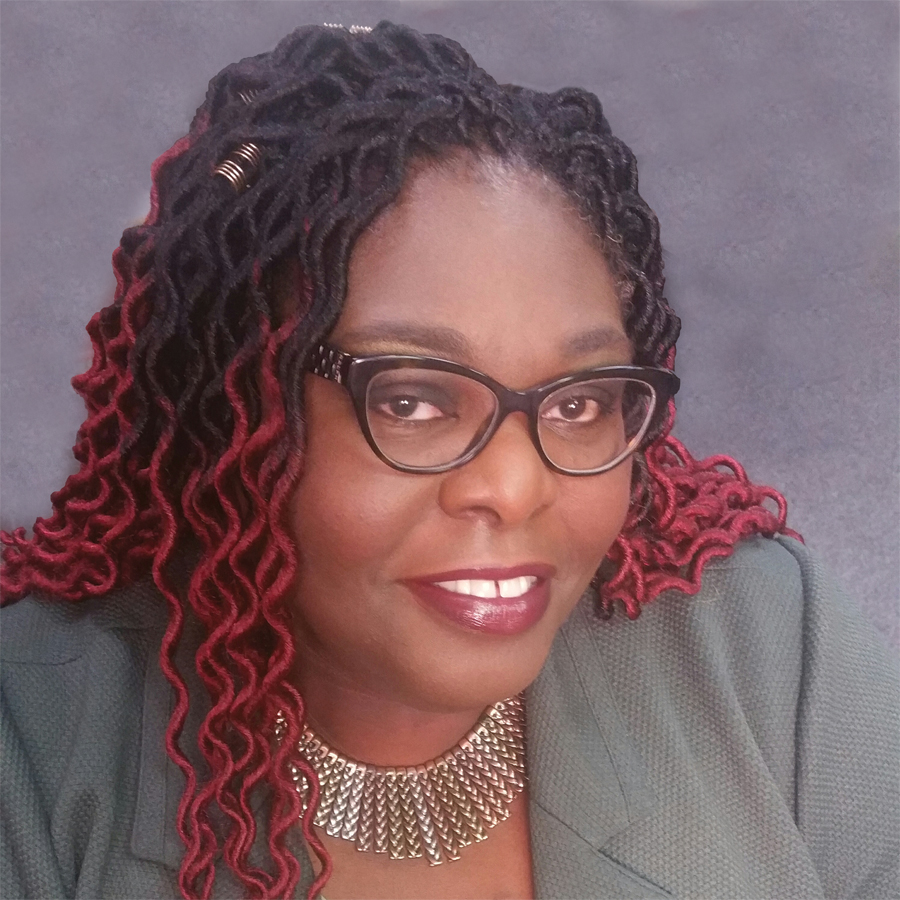
Elizabeth Williams-Riley
President and CEO
American Conference on Diversity
Moderator
“You are taking the first step to look at what is happening, the diagnosis, the environment not only around the world, but about ourselves.”
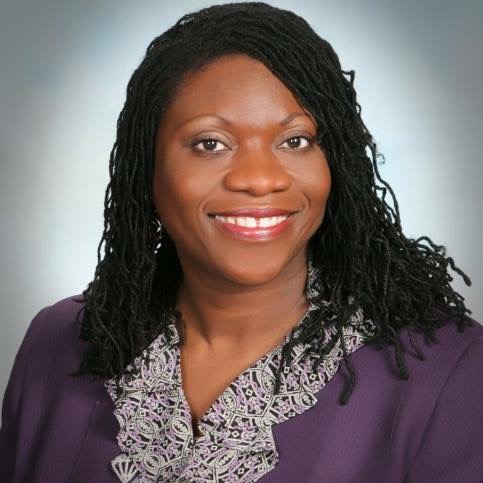
Professor Moya S. H. Bansile, JD
Legal Studies
Berkeley College School of Professional Studies
“For the most part, (black) men have been removed from the homes and black women have had to rise to the occasion to be both mother and father. It is a struggle to be the role who protects, inspires and motivates.”
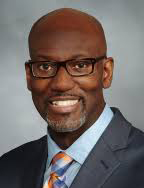
Professor Jamal Lopez, JD
Justice Studies
Berkeley College School of Professional Studies
“Born in the ‘70s to a single-parent mom, me and my sister, I always experienced the police as someone to avoid … at age 15, who does she remarry? A police officer … He is supposed to be the enemy and shows me a different view. I became a federal police officer for three years, transitioned to law school and … inclusion work … (The recent events) brought back old memories and reopened old wounds.”
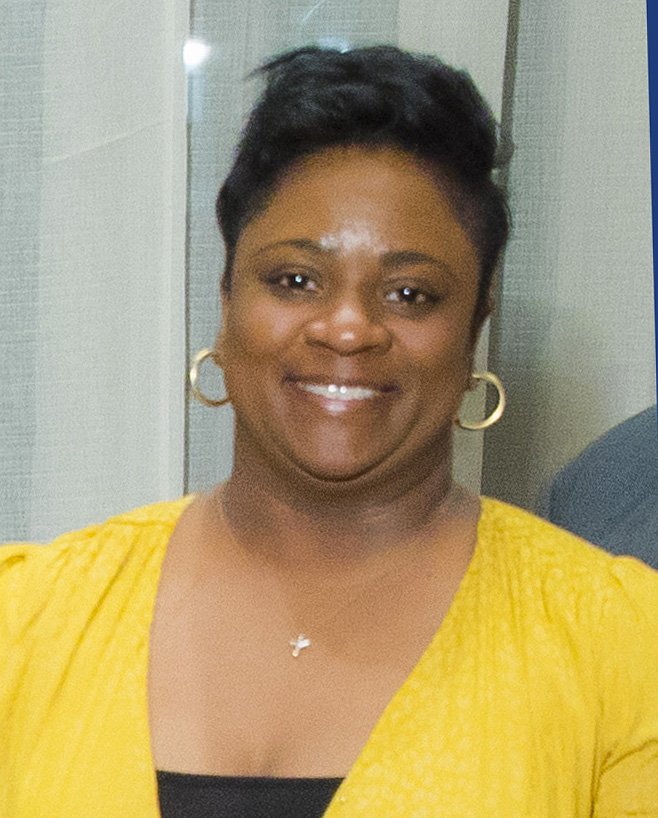
Professor Traci Dingle, JD
Justice Studies
Berkeley College School of Professional Studies
“Today we have third party citizens who use cellphones and officers with dashboard and body cams. In the past we never saw evidence … Being that we are home, are clinging to the TVs, we are seeing things too close together … in Atlanta Friday night … The scar isn’t healing.”
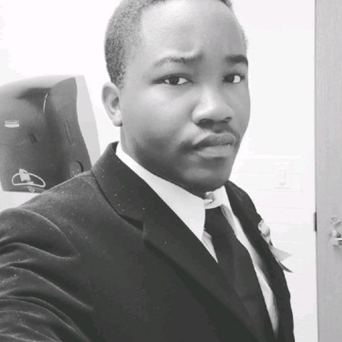
Akeim Dunkley
Berkeley College Student
“I am an Information Technology Management student from Jamaica who has been in the United States for three years and experienced the impact of discrimination … learned about the history of minorities in America. I am a member of the generation that has a different perspective. Overall my friends think all races are equal, most friends have interracial relationships and friendships … They feel police officers are not being held accountable.”
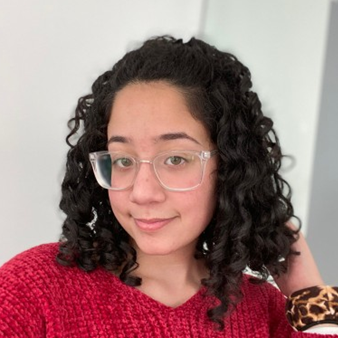
Lialie Mustafa
Berkeley College Student
“I feel it is my duty to speak up against injustices … Start at home, start small. Our parents and grandparents grew up in a different time. They all might not understand. Through friends, social media … That makes a difference … Do the research, get online, education saves lives, makes an impact. If you are not comfortable, there are other ways to make a change. Petitions, donations, bail funds are very important, the town hall, as a Berkeley community.”
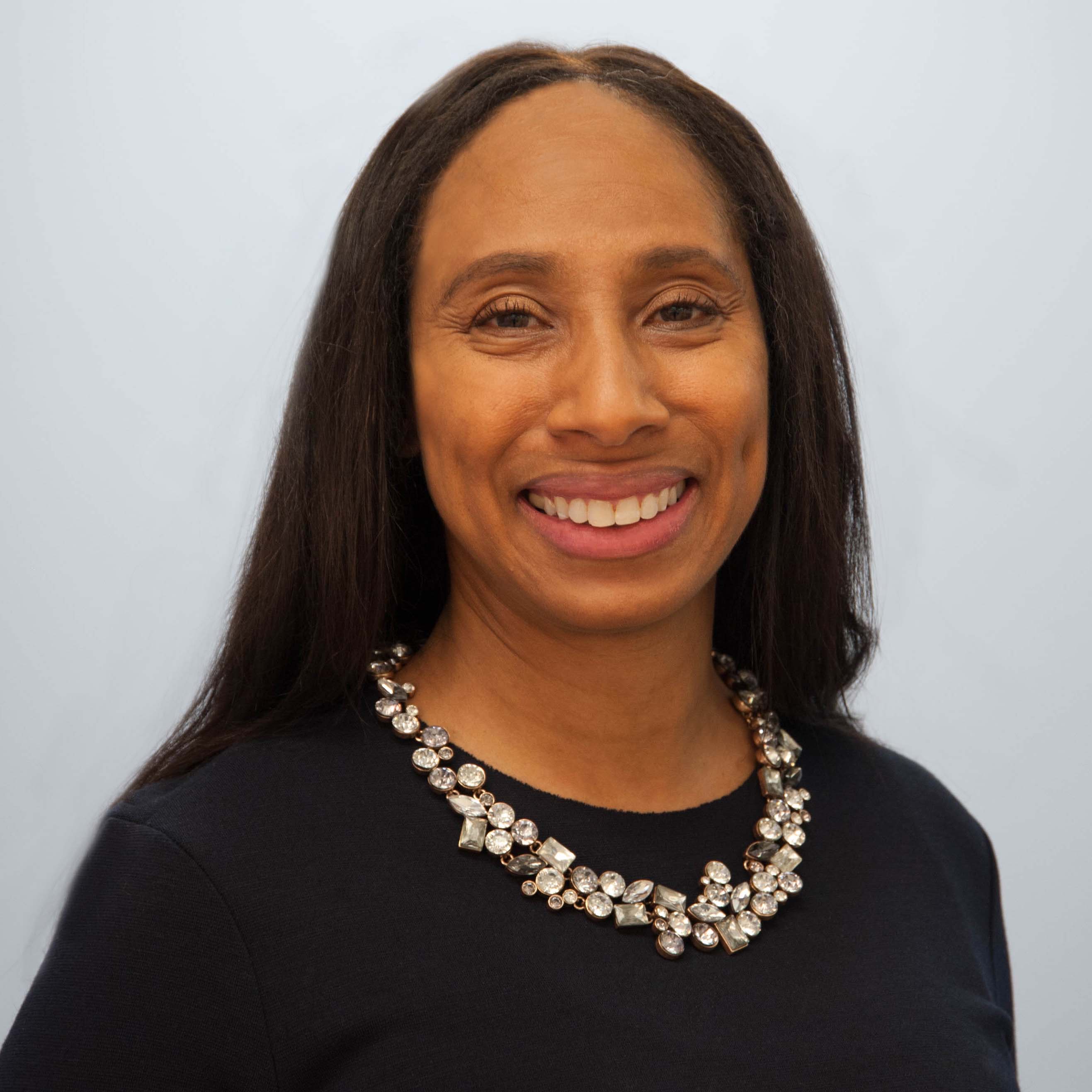
Professor Charlane Brown-Wyands, JD
Justice Studies
Berkeley College School of Professional Studies
“Show up at your local government level. Those people have an impact on your lives. Educate yourselves on who your local officials are. Do they (their views) align with yours or not? … Voter registration, fill out the census form this year. After you know your local officials, find out what do the issues like defunding police really mean? It is time for us to take that work to understand how these policies are going to impact us.”
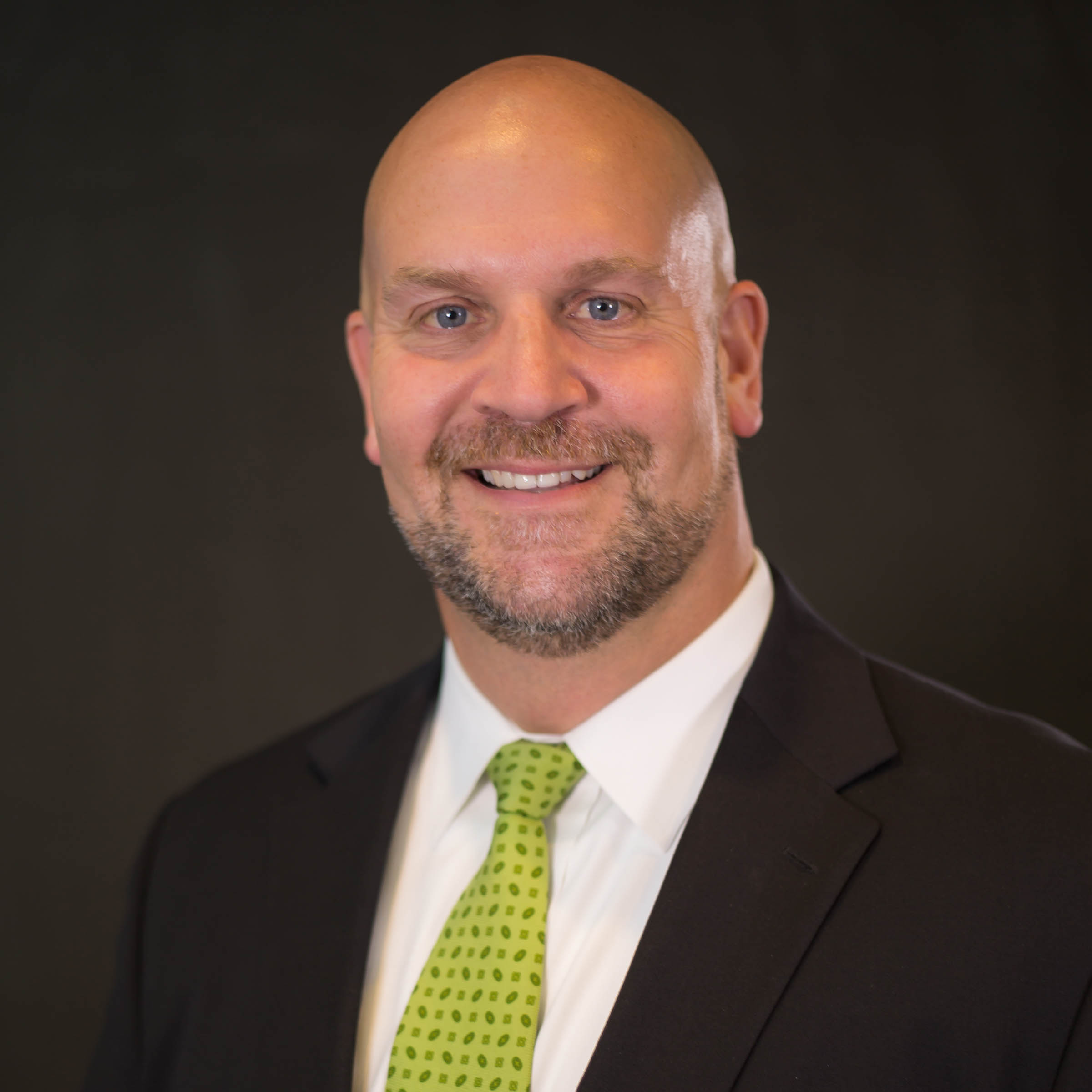
Robert Maguire
Assistant Vice President
Berkeley College Public Safety and Emergency Management
“Bring everybody into the police department. A lot of departments went to the military look (after 9/11) instead of community policing.”
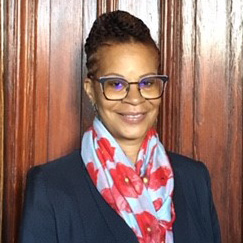
Professor Judith Corbett-Carter, PhD
Justice Studies
Berkeley College School of Professional Studies
“You can learn about the social justice organizations in your neighborhood. Some have been around 40 or 50 years. It was because of these that ‘stop and frisk’ ended in Brownsville, for example. It also can be a great opportunity for an internship.”
About Berkeley College
Berkeley College, founded in 1931, is a career-focused institution accredited by the Middle States Commission on Higher Education that offers students Master’s, Bachelor’s, and Associate’s degree and Certificate programs in more than 20 career fields. The College has campuses in Midtown Manhattan and White Plains, NY, as well as in Newark, Paramus, Woodbridge and Woodland Park, NJ, with more than 5,700 students enrolled. In addition, Berkeley College Online® serves a global population. U.S. News & World Report has named Berkeley College among the Best Colleges for Online Bachelor’s Programs and among the Best Online Bachelor’s Programs for Veterans, for seven consecutive years. The website address is www.BerkeleyCollege.edu
The mission of Berkeley College is to empower students to achieve lifelong success in dynamic careers.
- end -
To view the individual photos go to:
https://berkeleycollege.edu/newsroom/images/ADunkley.png
https://berkeleycollege.edu/newsroom/images/CBrownSM.jpg
https://berkeleycollege.edu/newsroom/images/EWilliamsRiley.jpg
https://berkeleycollege.edu/newsroom/images/JCorbettCarter.jpg
https://berkeleycollege.edu/newsroom/images/JLopez.jpg
https://berkeleycollege.edu/newsroom/images/LMustafa.png
https://berkeleycollege.edu/newsroom/images/MBansile.jpg
https://berkeleycollege.edu/newsroom/images/RMaguireSM.jpg
https://berkeleycollege.edu/newsroom/images/TDingle.jpg

